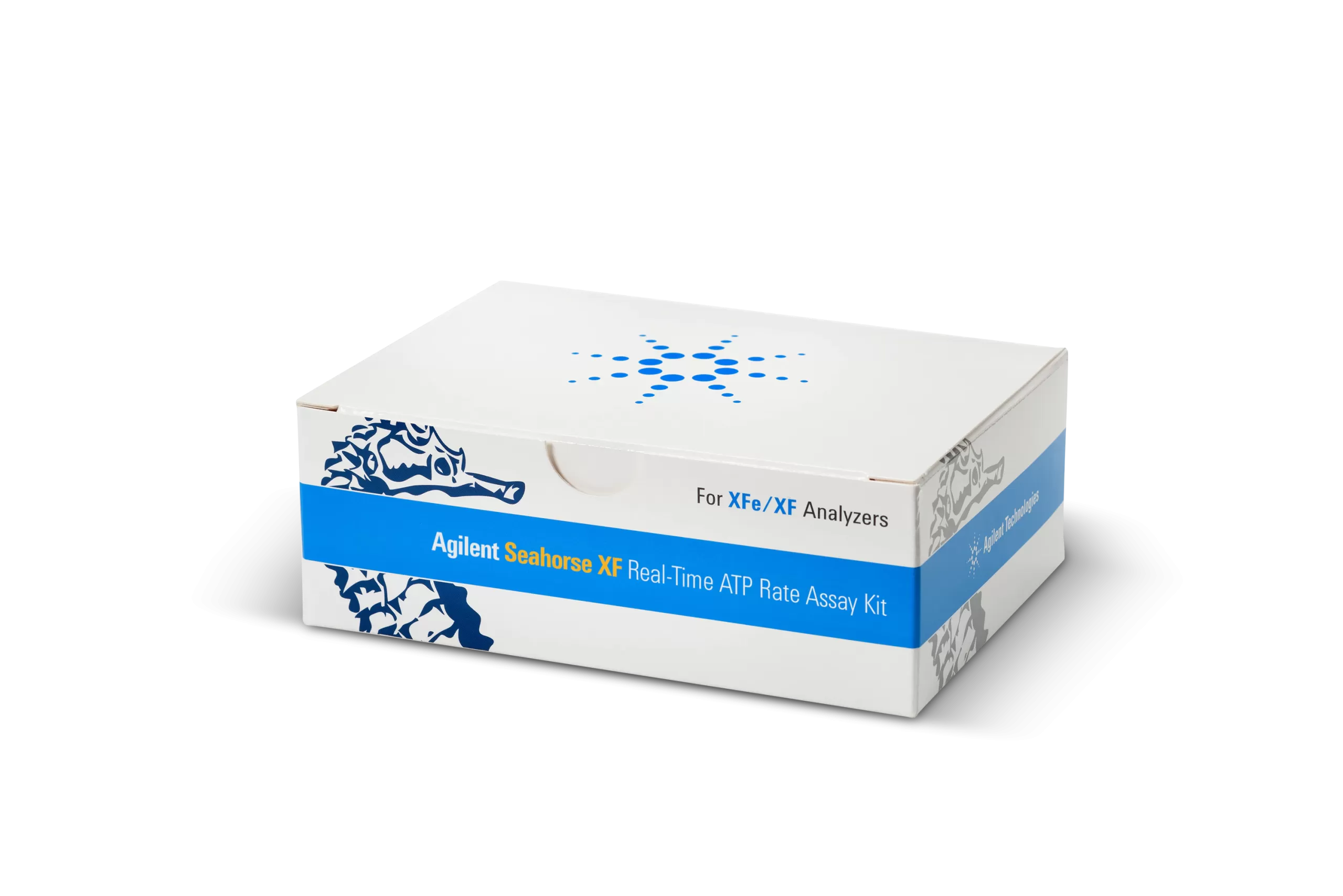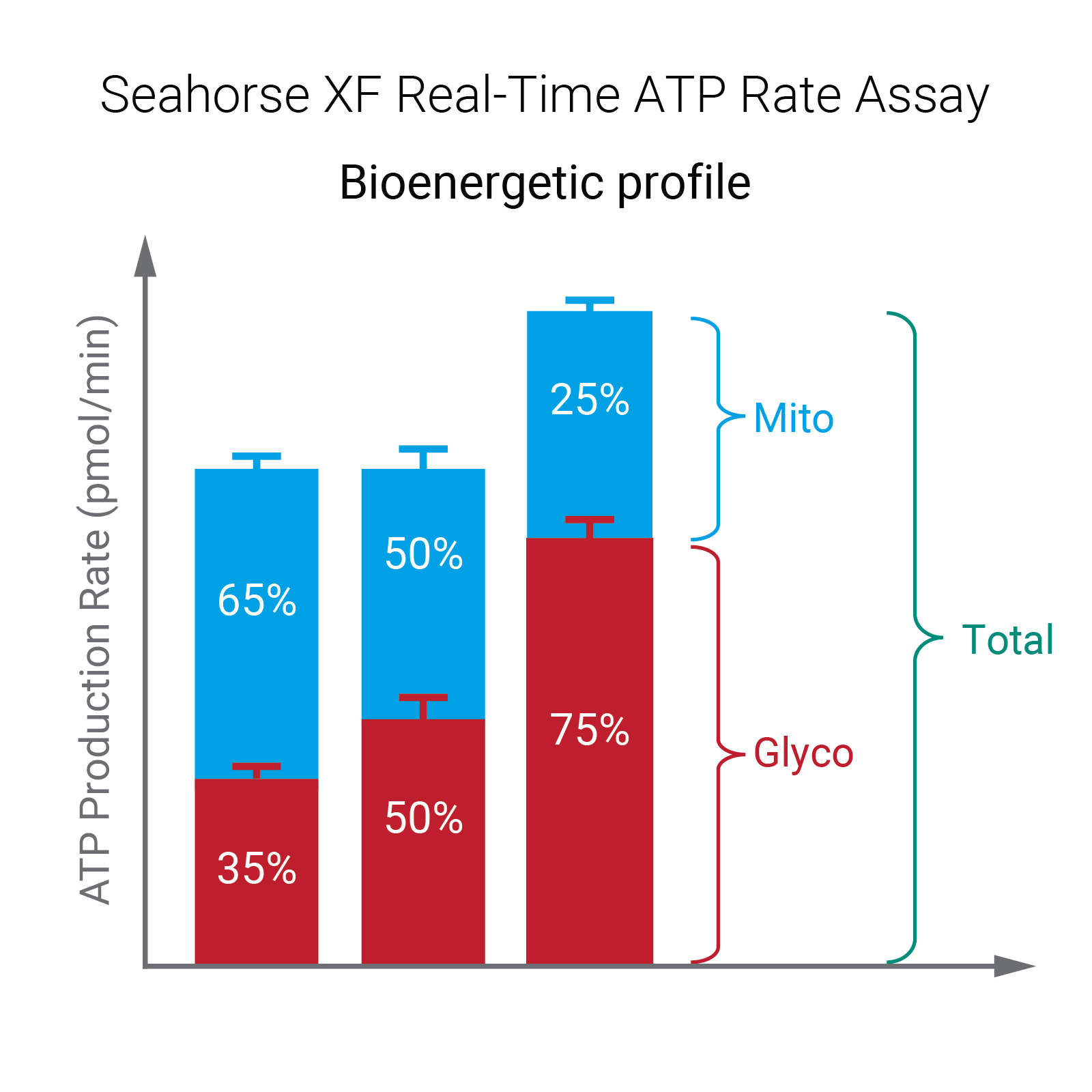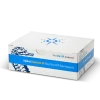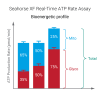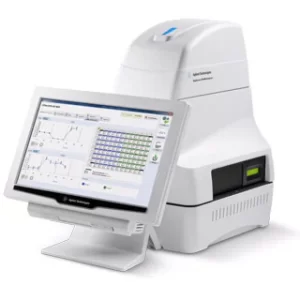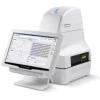Seahorse XF Real-Time ATP Rate Assay Kit
The Agilent Seahorse ATP Real-Time rate assay is the only assay that quantifies the rate of adenosine triphosphate (ATP) production from glycolysis and mitochondria simultaneously using label-free technology in live cells. The real-time kinetic quantification delivers a dynamic picture of cellular bioenergetics, providing researchers with unique insights into cellular phenotype and function. This assay should be performed using XF pH-defined media. Please refer to the assay user guide to select the correct media.
Each assay kit contains sufficient materials for six full-plate tests and is available in two packaging sizes. The XF kit is for use with Agilent Seahorse XF Pro, XF/XFe96 and XFe24 Analyzers. The XFp kit is for use with the Agilent Seahorse XF HS Mini and XFp Analyzers. The Real-Time ATP rate assay is not compatible with the Agilent Seahorse XF24 or XF24-3 Analyzers. It is only compatible with standard XFe96, XF96, and XFe24 cell culture plates (V3 and V7 PS), XF HS miniplates, and XFp miniplates.
For Research Use Only. Not for use in diagnostic procedures.


 Tiếng Việt
Tiếng Việt